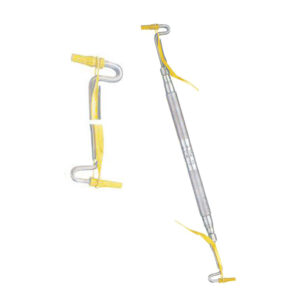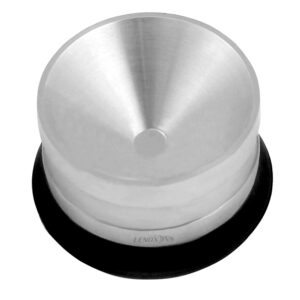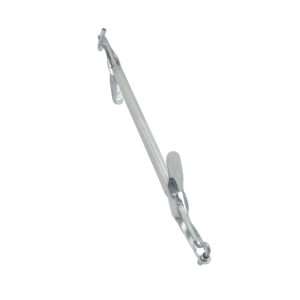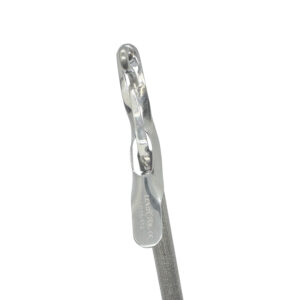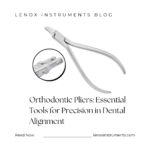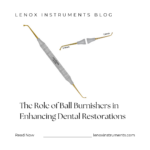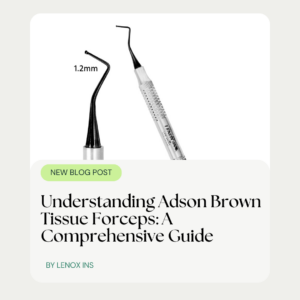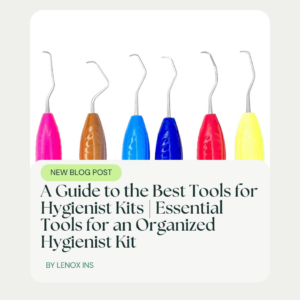Cart (0)
Close
The Importance of Amalgam Carvers in Dentistry
- LENOX INC CANADA
- September 6, 2024
- Cravers, Restorative
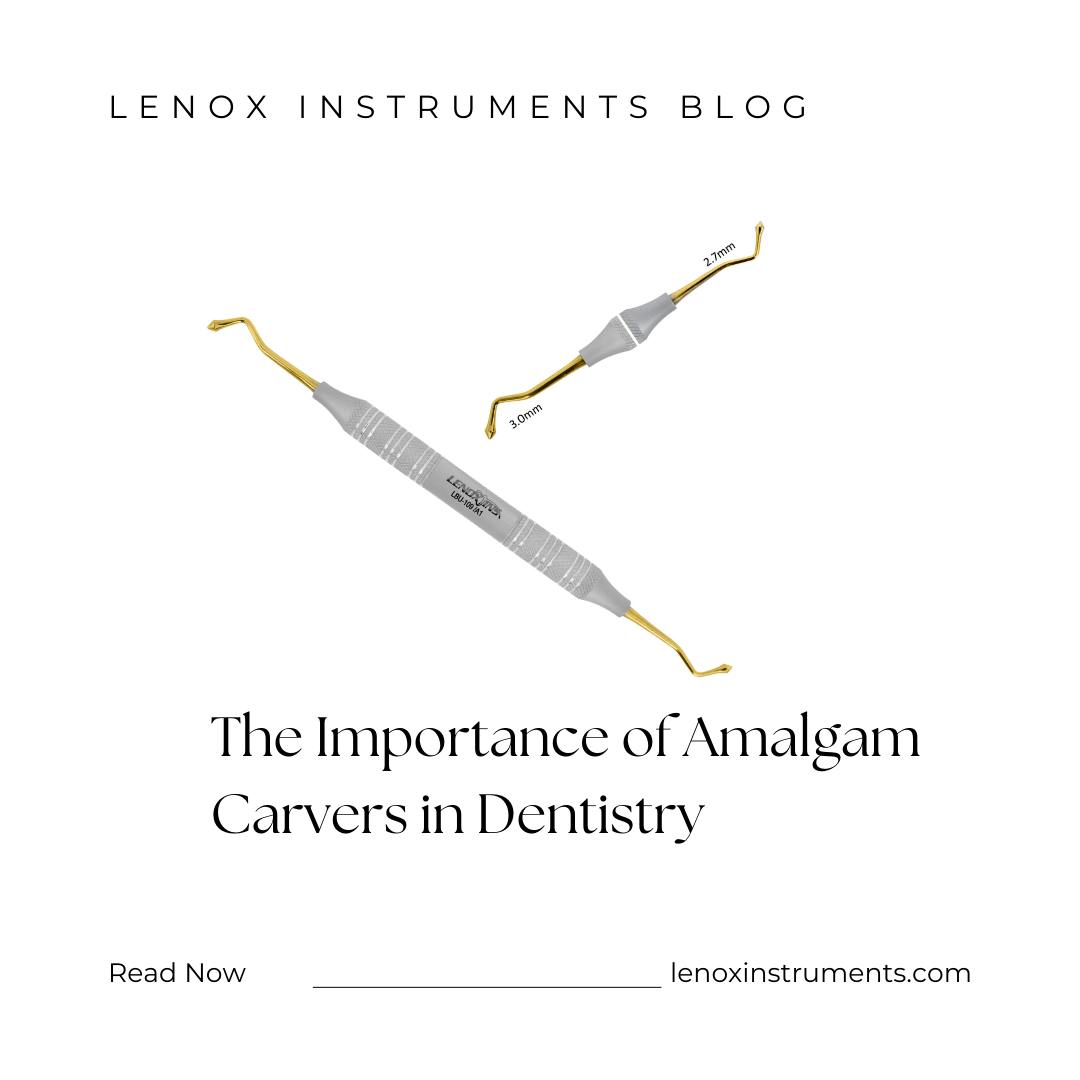
Amalgam carvers are essential instruments in restorative dentistry, playing a crucial role in shaping and refining amalgam fillings. These specialized tools allow dentists to create anatomically correct and functionally optimal restorations.
Key Functions of Amalgam Carvers
- Contouring: Carvers help shape the amalgam to match the natural tooth anatomy, ensuring proper occlusion and aesthetics.
- Margin Refinement: They allow precise trimming of excess material at the cavity margins, preventing overhangs and ensuring a smooth transition between tooth and restoration.
- Occlusal Adjustment: Carvers are used to create appropriate occlusal grooves and fissures, mimicking natural tooth topography.
- Contact Area Formation: In Class II restorations, carvers help establish proper interproximal contacts with adjacent teeth.
Amalgam Cravers
Types of Amalgam Carvers
Several types of carvers are commonly used in dental practice:
- Hollenback Carver: Ideal for contouring occlusal and interproximal surfaces.
- Discoid-Cleoid Carver: Versatile tool for general carving and refining.
- Wedelstaedt Chisel: Useful for carving straight lines and refining margins.
- Frahm Carver: Designed for creating anatomical grooves and fissures.
Impact on Restoration Quality
Proper use of amalgam carvers significantly influences the longevity and functionality of restorations:
- Improved Marginal Integrity: Careful carving reduces the risk of marginal leakage and secondary caries.
- Enhanced Occlusal Function: Well-carved restorations ensure proper bite alignment and chewing efficiency.
- Reduced Post-Operative Sensitivity: Accurate carving minimizes high spots that could cause discomfort or sensitivity.
- Aesthetic Considerations: While amalgam is not tooth-colored, proper carving can improve the overall appearance of the restoration.
Lenox Dental Elevators
Elevators are essential instruments in a dentist's toolkit, playing a crucial role in tooth extraction procedures
Skill Development
Mastering the use of amalgam carvers requires practice and attention to detail. Dentists must develop:
- A keen eye for natural tooth anatomy
- Steady hand control for precise movements
- Understanding of material properties and setting times
Evolving Role in Modern Dentistry
Despite the increasing use of composite materials, amalgam carvers remain relevant:
- They are still widely used in many parts of the world where amalgam is the primary restorative material.
- The skills developed in amalgam carving translate to other restorative procedures, including composite sculpting.
In conclusion, amalgam carvers are indispensable tools in restorative dentistry. Their proper use ensures the creation of durable, functional, and anatomically correct restorations, contributing significantly to the long-term oral health of patients.

Tylor Brooks
This entry was posted in Cravers, Restorative and tagged amalgam carvers, amalgam carvers for accurate marginal adaptation, amalgam carvers for accurate occlusal adjustments, amalgam carvers for anterior restorations, amalgam carvers for contouring, amalgam carvers for improved restoration aesthetics, amalgam carvers for precise shaping, amalgam carvers for smooth restorations, amalgam carving and sculpting instruments, amalgam carving instruments for smooth fillings, amalgam carving techniques, amalgam restoration tools for professional dentists, amalgam sculpting tools, best amalgam carvers, best carvers for achieving precise restoration contours, best dental carvers for composite work, best dental carvers for dentists, best dental carvers for posterior restorations, best restorative carving instruments, best tools for amalgam restorations, burnishing and carving tools for dental restorations, carving instruments for dental fillings, contouring and finishing tools for dental fillings, dental amalgam carvers, dental carvers for detailed contouring, dental carvers for direct restorations, dental carvers for longevity of fillings, dental carvers for occlusal adjustments, dental carvers for occlusal anatomy, dental carvers for shaping and finishing, dental carving instruments for achieving smooth margins, dental carving instruments for smooth restorations, dental carving tools for restorative procedures, dental instruments for amalgam restorations, dental restoration carvers for aesthetic results, dental restoration carving tools, durable dental carvers, ergonomic dental carvers, ergonomic design dental carving tools, essential amalgam carvers for dental clinics, essential carving tools for dental professionals, expert amalgam carving for long-lasting restorations, expert tools for restorative dentistry, fine detailing with dental carvers, high-performance amalgam carvers, high-precision amalgam carving tools, high-quality dental carvers, high-quality stainless steel dental carvers, importance of amalgam carvers, precision amalgam carvers, precision carving with dental carvers, precision dental carving techniques, premium carving tools for restorative treatments, premium dental amalgam carvers, premium dental instruments for restorative accuracy, professional carving tools for dentists, professional dental carvers, professional restorative carvers, professional-grade dental carvers, restorative carving techniques, restorative dentistry carvers for optimal results, restorative dentistry carving instruments, restorative dentistry tools, restorative finishing with amalgam carvers, restorative instruments for dentists, restorative shaping with amalgam carvers, shaping amalgam restorations with precision tools, shaping and contouring with amalgam carvers, stainless steel amalgam carvers, top-quality dental carving instruments, top-rated amalgam carvers, top-rated carving tools for restorative procedures

